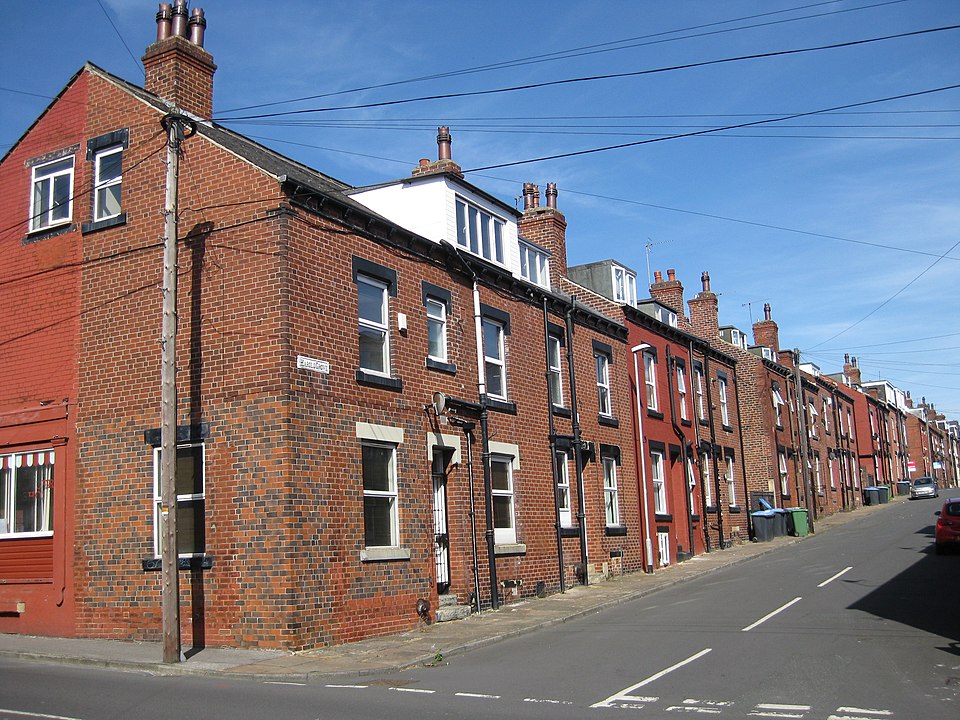“We’re all in this together…Again.” Resetting the approach to housing provision in West Yorkshire

I’ve worked in housing policy strategy and provision for over 30 years working with local authorities, housing associations, developers, third sector and community based organisations and tenants and residents groups.
Looking back over that 30 years, I rather hoped that I could see some major improvements in the housing system that could show an ability to meet the needs, requirements and aspirations of all parts of the community.
What I see today however, is a thoroughly dysfunctional system unable to achieve that.
What I see is:
-
A continuing preoccupation with home ownership as the only ‘proper’ tenure to provide housing health (and wealth!), matched by a continuing stigmatisation of housing for rent – being seen at best as a temporary stop-gap or at worst as being ‘dead money’ or a place for the undeserving or ‘non-achieving’
-
A housing system unable to meet the requirements of changing working patterns, which has been exposed during the COVID pandemic, and which may deepen post-COVID
-
A continuing preoccupation with new housebuilding and meeting, often highly dubious, housing number targets matched by a relative neglect of the clear need for making better use of existing homes through refurbishment, retrofitting and conversion
-
Capital spending for new housing being turned on and then off again in somewhat depressing cycles, matched by a lack of secure revenue funding to enable refurbishment, retrofitting and housing support to vulnerable people
-
A continuing inability to put in place the sort of planning policies that can make neighbourhoods places that support community and household well-being and sustainability.
There are key housing challenges at play in West Yorkshire. We have a huge stock or pre-1919 housing needing refurbishment and retrofitting (including 40,000 proper back-to-back terraced homes), not to mention a large stock of Multi-Storey Flats a proportion of which (following Grenfell) may not be safe.
We have a large number of households that are homeless, or vulnerable and needing support; We have a chronic shortage of truly affordable housing and areas that are unaffordable to live in both in terms of house prices and rental levels; We have many dysfunctional neighbourhoods, either too cramped with little green space, or located too far from amenities to make them sustainable.
At the same time, there appears to have been over the years, an erosion of a collective and collegiate approach to strategy making. While flawed in many respects, the regionalism of the late 1990s/early 2000’s combining Government Offices, Housing Boards and Housing Forum working with a wide range of sub-regional and local housing forums provided the opportunity for a widespread discussion of what housing provisions were needed and could be delivered backed up by a governmental recognition of the need for a partnership-based and inclusive approach.
There is a need for a reset in the way that policy and strategy relating to housing and placemaking is thought about and developed. This needs to:
-
Recognise that refurbishment and retrofitting and providing housing support to vulnerable people, are of equal importance to new housing provision
-
Promote refurbishment, conversion and retrofitting to make better use of existing homes and make a major contribution to combatting climate change
-
Reassert the fundamental priority of enabling access to housing that is of excellent quality, sustainable and truly affordable
-
Base new housebuilding on neighbourhood plans that are built around community-led housing provision developed through effective multi-sector partnerships
-
Promote placemaking that reasserts the necessity for housing to be closely accessible to amenities and services
-
Learn from new and innovative housing approaches being used in other countries
-
Incorporate the views of residents and communities
To achieve the reset needed, the West Yorkshire Mayor needs a coherent and radical vision for housing and places that can provide the basis for robust lobbying for Government support and private investment.
It is crucial that this vision has the support of communities and providing organisations across the housing system (local authorities, tenants/residents and community groups, housebuilders (especially those willing to innovate and provide truly affordable options), housing renovators and retrofitters, housing managers and landlords and specialist housing support services, and it needs to involve academics and policy researchers and draw upon ideas from inside and outside of the UK.
The election of the West Yorkshire Mayor and the establishment of the combined West Yorkshire Authority provides an opportunity to reinvent an inclusive partnership-based approach that could:
-
Identify what the housing provision for the next 30 or so years should look like
-
What barriers there may be to that ‘vision’ and how these may be overcome
-
Promote community led housing approaches that build upon current approaches as the key to developing sustainable approaches to meeting needs, requirements and aspirations and reassert the crucial importance of affordable housing for rent and purchase
-
Consider the balance between new building and better use of existing homes
-
Identify and develop new and flexible approaches to housing tenure, that move away from the ‘binary distinction’ of buying or renting
-
Identify the best means to secure the retrofitting and refurbishment of existing housing
-
Identify ways of making better use of empty homes
-
Promote innovative design in the size and type of housing provided that challenges the ‘duopoly’ of the ‘small flat’ or the ‘large executive house’
-
Promote the notion of the 15 minute neighbourhood and the importance of housing provision being in close proximity to local amenities and services
It may be a case of going ‘back to the future’? It could very well be that this could both help design the housing manifesto for West Yorkshire and enable an effective and ‘democratic’ implementation of the range of actions needed to create a better and far more functional and sustainable housing system capable of meeting the needs, requirements and aspirations of our communities.
Huw Jones worked for Kirklees and Leeds Councils between 1987 and 2004; for re’new, a regeneration charity, between 2004 and 2012; and since as an independent consultant and researcher.
He coordinated and advised the Leeds Housing Partnership for many years and also provided coordination to the West Yorkshire Housing Partnership which formed to gain funding through the Housing Market Renewal Fund, had the full support of the 5 West Yorkshire Chief Housing Officers and Lead members, and developed a partnership approach with housing associations, tenants groups and housebuilders. It focused on addressing low demand for housing in priority areas, while developing a wider housing strategy for West Yorkshire. It had some success but ultimately failed as the HMRF was wound up after 3 years as it was unable to provide instant solutions to problems arising over decades and the Government lost interest in ‘Regionalism’ after the Blair/Brown/Prescott years
Photo By Chemical Engineer - Own work CC BY-SA 4.0, Link
What does the West Yorkshire devolution deal mean for our region?
Ryan Swift gives our first response to the West Yorkshire devolution deal.
This week it was an announced that a West Yorkshire devolution deal has …
Programless Spaces, further questions, Sarah Aziz, Neil McKenna
This is an email exchange of follow up questions and answers between Neil McKenna and Sarah Aziz after Sarah's presentation about programless spaces at the …
What could devolution mean for asylum seekers in Yorkshire?
by Ian Martin @ianeastleeds
What would happen if Yorkshire could decide for itself how to welcome those fleeing war and persecution? If you want to …

